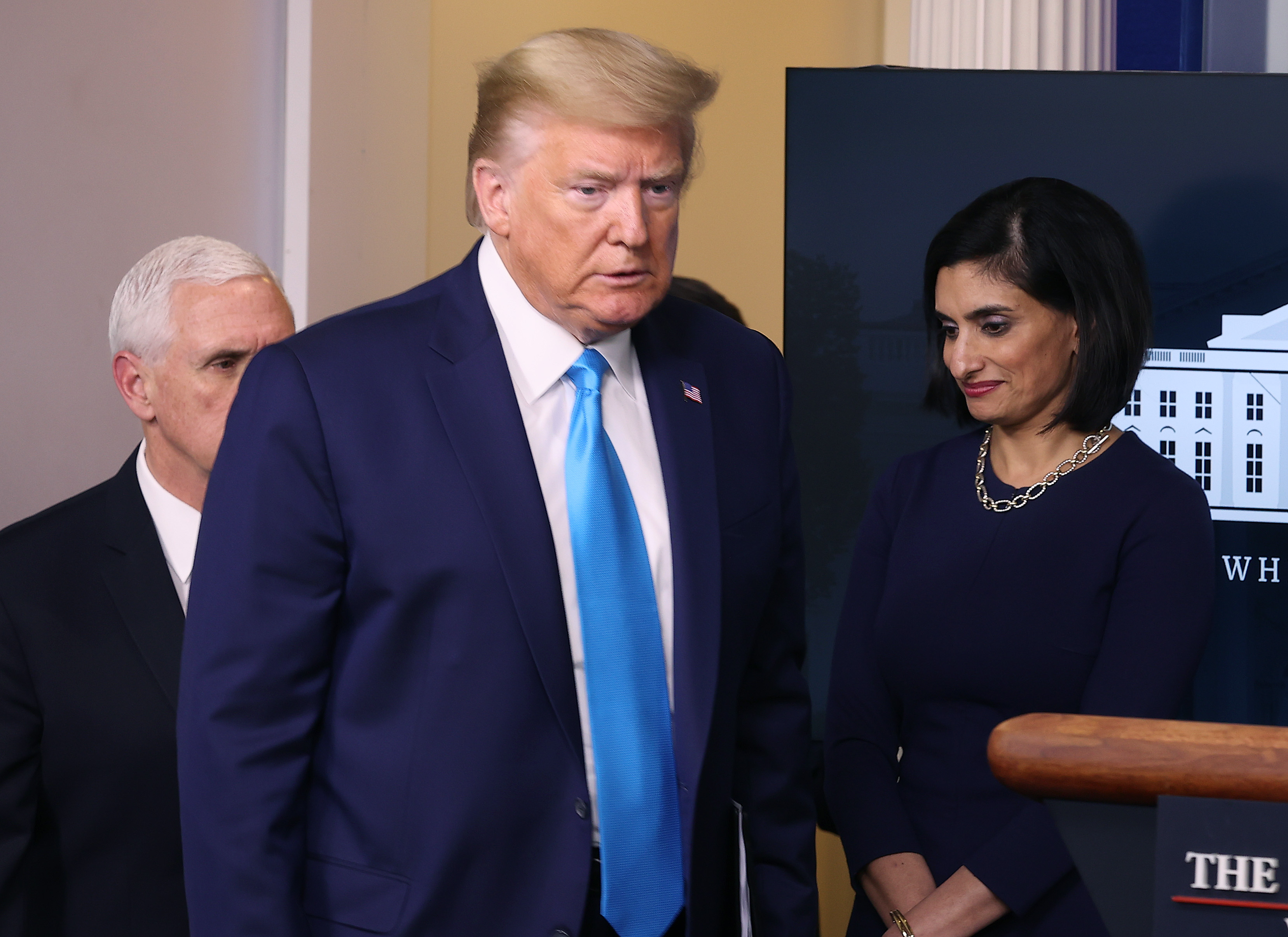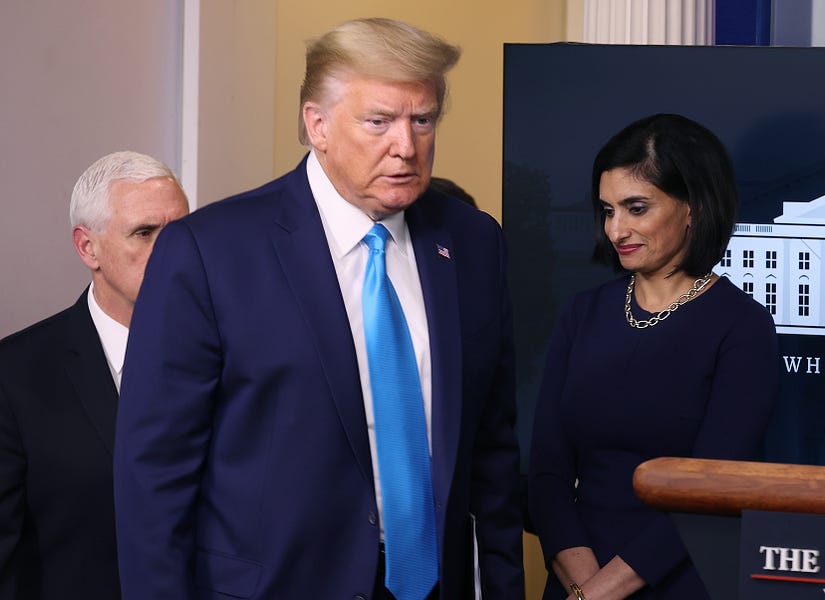Hello Readers,
It’s interesting, this is the first disaster in my lifetime where I haven’t heard anyone talk about theodicy. Theodicy is a branch of theology, though it was born in an age when philosophy and theology overlapped a lot more than today. It grapples with how a just and good God could allow evil or suffering to have so much market share in this world. It often comes up in the wake of natural disasters and other calamities. But not so much this time. A quick and rough Nexis-Lexis search shows hundreds of articles discussing the 9/11 attacks and theodicy, but only a dozen or so with regard to the coronavirus.
Of course, it’s early yet, and that conversation may come (though that might be a bad sign). But just going by the tenor of the conversation it doesn’t quite feel like we’re heading in that direction.
I can think of several reasons why.
Even though far more Americans have died from this virus than died from the 9/11 attacks, the deaths this time are more hidden, and the images are far less cataclysmic. No smoldering rubble. No photos of people leaping to their deaths. Attacks like 9/11 and Pearl Harbor lend themselves to nationalistic responses and such responses have the tendency to ignite religious conversations.
Similarly, earthquakes, floods, storms, tornados, all look like acts of God. That’s not just because they’re all literally biblical calamities and legal “acts of God,” they also feel humbling because they are out of human control. People don’t cause things like earthquakes—God, or nature, or forces outside of human agency are responsible. And because we are pattern-seeking creatures we crave to cram them into narratives we can understand and that give us some sense of control. For some, the tragedy is part of God’s plan, and therefore God had to have a reason for doing it. This causes some to assume that we must have done something to invite God’s wrath (hence theodicy).
Others of a less religious bent use the same instinct to pin the blame on us, which is why after every hurricane—and sometimes even after earthquakes—someone links it to man-caused climate change. Yes, I understand that there are scientific theories for why hurricanes, and even earthquakes, can be triggered by human actions. But without going down that rabbit hole, I think it’s fair to say that many of the loudest voices making such claims start with the conclusion without ever familiarizing themselves with the scientific literature.
My point is merely that we are arrogant animals who too often leap to the conviction that every bad thing must in some way be about us.
Another reason why we’re not talking about God very much is that God is shrinking from the public conversation generally. You could look it up.
The new paranoid style.

But something else is also going on. The people who can usually be relied upon to blame a calamity on Americans offending God aren’t going there. Why? One possibility is that many of these people have spent the last few years telling us that God gave us Donald Trump to save America and make her great again. And until last month, they attributed every good development and economic indicator to his heroic leadership. A month later, that’s a hard claim to reconcile with God visiting a plague upon us. It wouldn’t surprise me if someone is working on that argument as we speak (You can do it, Jerry Falwell Jr.!)—it’s probably just that it needs more spit-balling and storyboarding before going live with it.
But such people are just a subset of a much larger faction on the right that dominates much of the conversation these days, and they are not in a particularly theological mood. Their theory of why bad things happen in general, and why Donald Trump doesn’t win at everything in particular, is that bad people are to blame.
Large swaths of the right have gotten into the game. This worldview was well-developed on the right before Donald Trump entered the picture. “Globalists,” the “Deep State,” the “establishment,” “Big Tech,” “the media,” or just George Soros, are conspiring to keep “us” down. These theories were attracting adherents before Trump ran for president, and I’ll be the first to admit that I think there are facts to support some of the claims made under their flag. But I am also content to concede that there is some truth to the indictments made by Marxists, feminists, et al. Theories with some explanatory power are often useful and legitimate. Theories that claim total explanatory power are always wrong and often dangerous. I think this is true as a matter of theology, sociology, and just plain life. If some theory explains all human action, then free will doesn’t exist, and there’s no point to getting out of bed. To put it bluntly: Neither God nor racism made O.J. Simpson murder his wife.
This mindset, and its flaws, are very recognizable to conservatives when exhibited by people on the left. Marxists and their kin have filled library shelves with explanations for why bad things happen—or simply why you can’t have nice things—and they all involve greedy string-pullers, the ruling classes, the industrialists, “the billionaire class,” etc. Folks of a more intersectional bent take the same Marxist mode of analysis and just change the labels of the villains a little. The forces of white supremacy, male privilege, and colonialism join with the traditional malefactors of great wealth in the bestiary of bad guys. Individual agency—i.e. the decisions we make ourselves—is a myth used to distract from the “systems of oppression” that define and constrain us.
What’s equally interesting and maddening is how Donald Trump has both lent emotional fuel to the righ-twing version of this worldview while simultaneously stripping it of intellectual rigor. Again, I think there are important criticisms to be made of the administrative state, the media, and the rest. But Trump’s broadsides are largely unconnected to them. It’s all personal for him. When a reporter—from Fox News!—asked an entirely valid and polite question about the persistent shortage of COVID-19 tests the other day, he attacked her and her “horrid question” insisting that she should be congratulating him for doing such an amazing job. This had zilch to do with any of the intelligent arguments about media bias and everything to do with the fact that Donald Trump wants adulation and believes criticism of him is inherently illegitimate.
Right now, the president’s posse of praetorians wants simultaneously to argue—or to be more accurate, bully and insinuate—people into believing that he’s done a masterful job fighting the pandemic from Day 1, and that the reaction to the pandemic is wildly overblown, and that he’s being duped by the medical wing of the Deep State. As someone on Twitter said (I can’t find it), Trump can never fail, he can only be failed. So Anthony Fauci, an adviser with no formal power to do anything is the author of our economic woes, not the person acting on his advice. When this argument isn’t convenient, we sometimes get the claim that it’s not the president who is doing any of this, but the governors. This has some technical truth to it, but if the governors are wrong, why isn’t the president saying so? Why isn’t he countermanding them in any meaningful way? Why is he boasting, nightly, about how brilliantly he’s been in supporting them? Why can’t he see that he’s being duped by the media, the governors, or by the NIH’s Rasputin?
All conspiracy theories start with the conclusion and then retrospectively engineer an argument to support them, plucking helpful facts out of their context to prove the validity of the conclusion. This is how Marxism works. It’s how Nazism worked (the Jews were the globalists before we had the term). It’s how every feverish theory of how “the world really works” operates. And it’s the way the Trump defenders work. They begin with the assumption that Trump is right, even if he contradicts himself from one day to the next, and then pluck facts and theories from the shelf to make the case. When his own words contradict the theory, we’re told to take him seriously, not literally. But as Adam White observes, what they often really mean is to take him hypothetically. He could have meant X, so therefore we must assume that’s what he meant.
I don’t think Trump has done everything wrong since the coronavirus emerged. I think the Communist Party of China deserves more blame for our predicament than any other single actor (though I do not subscribe to the “bioweapon” conspiracy theory). But nor do I believe he’s done everything right. But what is maddening is the way so many of his defenders must bend every theory of this crisis to the conclusion that he is right. It’s a form of theodicy suited for a god-king. “Why is Trump letting this happen? He’s not. He’s being betrayed. He cannot fail, he can only be failed.”
And, yes, I am also vexed by his enablers among his opposition who insist on the inverse: that he is to blame for everything. Amid all of the gnashing of teeth and rending of cloth over whether the media should cover his press conferences, CNN opted to cover the president’s meandering self-congratulations and then cut away when the experts and responsible officials started talking. What’s the defense of that? There isn’t one. Unless, like his biggest fans and his biggest detractors, you think this all about Trump.
It’s not. Bad things happen. And people can react badly as a result. But they can also react nobly and graciously—including in the core sense of the word, with grace. That’s because people have free will. People are not victims of cold, impersonal forces, nor pawns of sinister ones. Unless they choose to be.
I guess that’s my Passover message for everybody.
Photograph of Donald Trump by Chip Somodevilla/Getty Images.







Please note that we at The Dispatch hold ourselves, our work, and our commenters to a higher standard than other places on the internet. We welcome comments that foster genuine debate or discussion—including comments critical of us or our work—but responses that include ad hominem attacks on fellow Dispatch members or are intended to stoke fear and anger may be moderated.
With your membership, you only have the ability to comment on The Morning Dispatch articles. Consider upgrading to join the conversation everywhere.